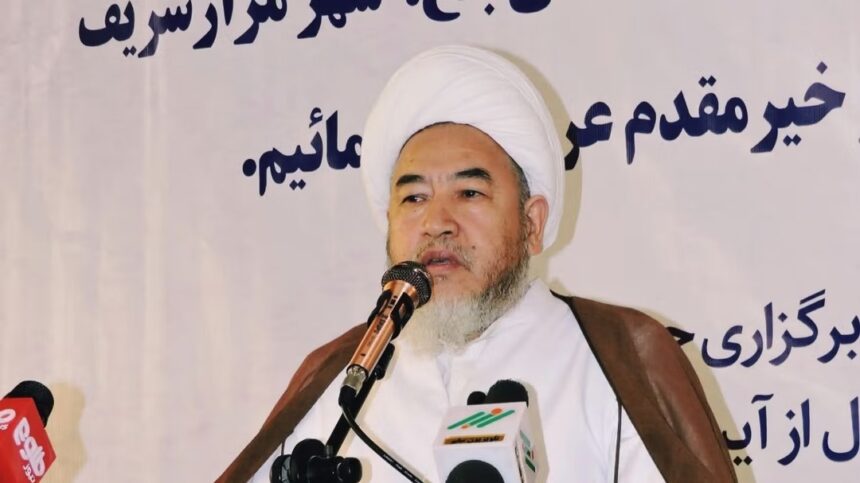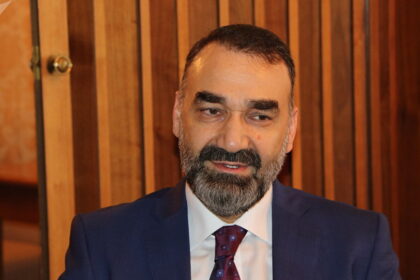RASC News Agency: Waezzada Behsudi, a distinguished Shia cleric, has called on the Taliban to acknowledge Afghanistan’s ethnic diversity as an undeniable reality. He warned that without establishing diplomatic ties with the international community, fostering relations with neighboring countries, and embracing Afghanistan’s diverse ethnic and political groups, the Taliban’s rule will remain fragile and unsustainable. Addressing a gathering in Balkh Province, Behsudi urged the Taliban to move beyond ethnic exclusivity and recognize the pluralistic nature of Afghanistani society.
Speaking at the Sarwar-e-Kainat Grand Mosque in Karteh Sena, Balkh, he directly appealed to Pashtuns, urging them to embrace Tajiks, Hazaras, Uzbeks, and other ethnic groups as equal stakeholders in Afghanistan’s future. He stressed that no single ethnic group can single-handedly resist global and regional challenges. “If the people stand with us, we possess everything,” Behsudi declared, cautioning the Taliban that continued isolation will only lead to political and economic stagnation. He also underscored the urgent need for diplomatic engagement, stating:
“Without building constructive relations with regional powers and the international community, Afghanistan cannot move forward.” Behsudi further advocated for the creation of a truly national administration, warning that without inclusive governance, Afghanistan will remain vulnerable to external threats and internal discontent. “We must cultivate a national vision, a unified national voice, and a collective national movement,” he asserted. He also urged the Taliban to respect Afghanistan’s rich cultural, religious, and ethnic heritage, emphasizing that their governance must be founded on national consensus rather than exclusionary policies.
“If we establish a genuinely national administration, the world will not be able to sideline, humiliate, or ignore us,” he added. Since seizing power in 2021, the Taliban have been accused of consolidating authority through systematic exclusion, marginalizing ethnic groups, and eliminating women from public life. The group has undertaken a sweeping purge of government institutions, replacing diverse professionals with its own loyalists. Despite growing international pressure to form an inclusive government, the Taliban dismiss such demands as foreign interference, insisting that their administration already represents the Afghanistani people. However, critics argue that their governance remains deeply exclusionary, exacerbating social divisions and fueling national unrest.
Behsudi’s remarks highlight the urgent need for reconciliation, inclusivity, and diplomatic engagement. Whether the Taliban heed this call for change or continue down their current path of isolation and authoritarianism remains a pivotal question for Afghanistan’s future.






